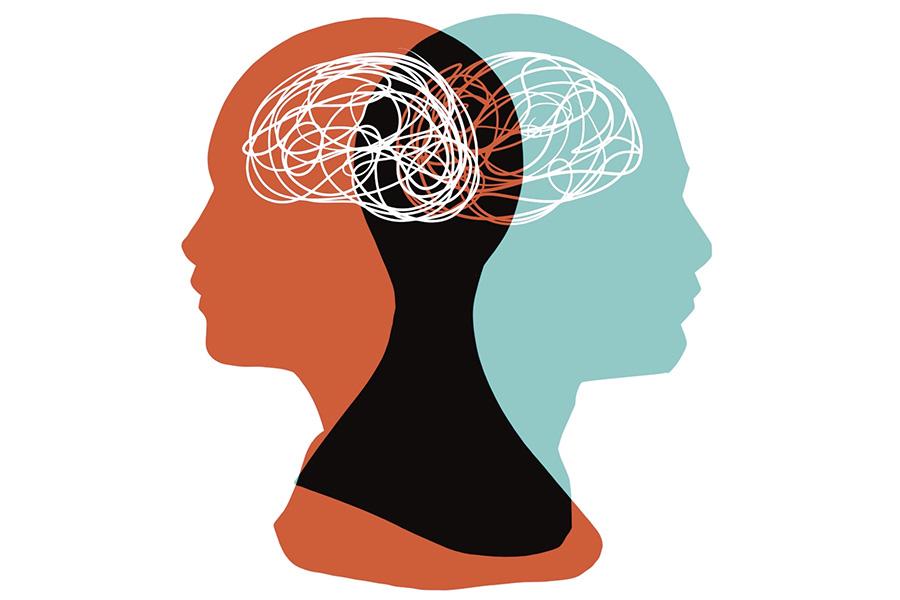Inpatient Mental Health Providers: A Path to Healing and Stability
Inpatient psychological health and wellness services play an essential function in dealing with intense psychological situations, offering a meticulously structured setting that fosters recovery and security. These services not just encompass thorough assessments and personalized therapy plans yet also supply continual access to restorative interventions and clinical assistance. The significance of this technique expands beyond instant alleviation, recommending a transformative influence on lasting mental health. The intricacies of the admission procedure and the significance of aftercare raise important inquiries concerning accessibility and effectiveness in the broader context of mental health and wellness care. What ramifications might these factors have for people looking for aid?
Comprehending Inpatient Mental Health Providers
Inpatient psychological health and wellness services are important for offering intensive and structured like individuals experiencing severe emotional distress or psychological disease. These services generally entail the admission of people to specialized facilities where they receive continuous supervision and assistance from a multidisciplinary group of psychological health specialists. The primary objective of inpatient treatment is to stabilize people, ensuring their safety and addressing severe symptoms that might position a risk to themselves or others.
Inpatient programs typically include a variety of restorative interventions, including specific and group treatment, medication monitoring, and psychoeducation. The structured environment is created to promote healing by offering a constant routine, decreasing external stress factors, and helping with the growth of coping techniques.
Admission to inpatient solutions is typically taken into consideration when outpatient treatment choices have confirmed insufficient or when an individual remains in crisis. Facilities might differ in regards to their certain focus, with some concentrating on particular disorders such as anxiousness, depression, or substance use. With thorough analyses and tailored treatment plans, inpatient psychological wellness services intend to provide the necessary support for individuals to gain back security and get ready for a shift to less extensive levels of care.
Benefits of Inpatient Treatment
The advantages of inpatient care are significant, particularly for people facing acute psychological wellness difficulties. Inpatient treatment gives a structured environment that cultivates healing by minimizing stress factors and disturbances connected with life. This regulated setting permits individuals to focus only on their mental health, promoting the required time for healing.
In addition, inpatient treatment offers 24/7 accessibility to restorative and medical assistance. This constant accessibility ensures that individuals can receive prompt attention during crises, which is crucial for those experiencing extreme episodes - Inpatient Mental Health Facility. The collective strategy among clinical team, including registered nurses, psychiatrists, and specialists, enhances the quality of care and promotes a thorough treatment plan tailored to private demands
Additionally, the common element of inpatient treatment cultivates a feeling of belonging and support among individuals. Team treatment sessions and shared experiences can alleviate feelings of isolation, urging individuals to participate in their recuperation proactively.
Furthermore, inpatient programs frequently give patients with important coping methods and skills that can be challenging to establish in outpatient settings. By attending to underlying problems within a helpful framework, inpatient treatment can lead to more stable outcomes and a smoother transition back to everyday life, eventually leading the course to continual recuperation.
Treatment Techniques and Therapies
Various treatment strategies and therapies are employed in inpatient mental health and wellness services to deal with the unique needs of each patient. These approaches are made to promote recuperation and advertise emotional stability in an organized environment.

Cognitive Behavior Modification (CBT) is an extensively made use of technique, assisting people in identifying and modifying negative idea patterns that add to their psychological health concerns - mental health services. Dialectical Behavior Modification (DBT) is one more effective technique, specifically for those with borderline personality condition, concentrating on emotional guideline and social effectiveness
Pharmacotherapy plays an important role in treatment, with psychiatric drugs prescribed to handle symptoms of problems such as clinical depression, anxiety, and schizophrenia. Normal monitoring and adjustments make sure the performance of these medicines while reducing negative effects.
Group therapy promotes a sense of area and assistance amongst people, allowing them to share experiences and coping strategies. Furthermore, alternative treatments, such as art and songs therapy, promote self-expression and emotional healing.
Eventually, the combination of these diverse restorative techniques offers an extensive therapy plan tailored to every client's particular needs, aiming to enhance their overall well-being and facilitate an effective shift back right into daily life.
The Admission Process
Navigating the admission process for mental health and wellness services is a vital initial step toward recovery. This procedure normally starts with find more info an evaluation conducted by a psychological wellness expert. Throughout this evaluation, the individual's psychological health and wellness history, symptoms, and instant requirements are thoroughly examined. This thorough evaluation helps establish the ideal level of care and makes certain that the individual receives customized treatment.
When the analysis is completed, the next step entails going over the possible treatment choices. The individual and the therapy group collaboratively choose the best strategy, which might include inpatient treatment if the situation is considered extreme. This is adhered to by the completion of needed paperwork, including insurance policy verification and consent kinds, to ensure that all economic and legal elements are attended to.
In addition, family involvement might be urged during this phase to give support and gather point of views on the person's scenario. Inevitably, the admission process aims to produce a supportive and safe setting for the person, enabling a smooth transition into inpatient care. By comprehending and getting involved in this process, individuals can take an essential step toward accomplishing mental health and wellness security and recovery.

Aftercare and Ongoing Assistance
After finishing an inpatient mental health and wellness program, individuals typically encounter the crucial job of transitioning to aftercare and ongoing support, which are important for continual healing. This stage is crucial for strengthening the abilities and dealing mechanisms discovered throughout the inpatient keep, guaranteeing that people remain to advance in their psychological wellness trip.
Aftercare generally includes a mix of outpatient treatment sessions, support teams, and medicine management. Engaging in regular treatment permits people to resolve ongoing challenges and establish techniques to handle stress factors in their lives. Support system provide a feeling of area and shared experience, fostering connection and understanding among peers facing similar struggles.
In addition, ongoing support might consist of family members participation, where enjoyed ones are educated about psychological health and wellness problems and motivated to take here are the findings part in the healing procedure. This holistic method creates a robust assistance network, boosting the person's opportunities of long-lasting stability.
Ultimately, ongoing and aftercare assistance work as a bridge between inpatient therapy and independent living, encouraging people to navigate their mental wellness challenges with resilience and self-confidence. Focusing on these resources is vital for cultivating a lasting healing trajectory.
Final Thought

Inpatient mental wellness services play an essential function in addressing intense psychological situations, offering a thoroughly organized setting that cultivates healing and security.Inpatient mental health and wellness services are necessary for offering extensive and organized care to people experiencing severe mental distress or psychological ailment. With thorough evaluations and customized treatment plans, inpatient psychological health and wellness services aim to provide the needed assistance for individuals to restore security and prepare for a shift to less intensive levels of care.
